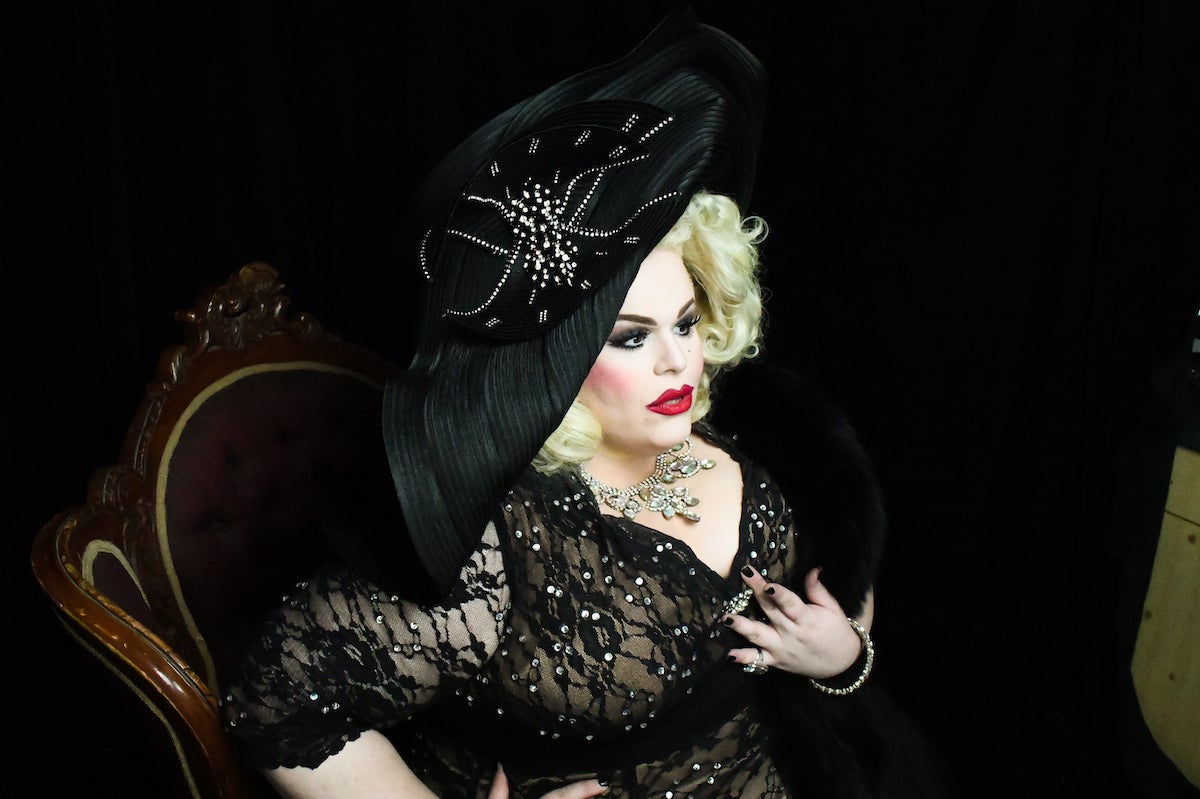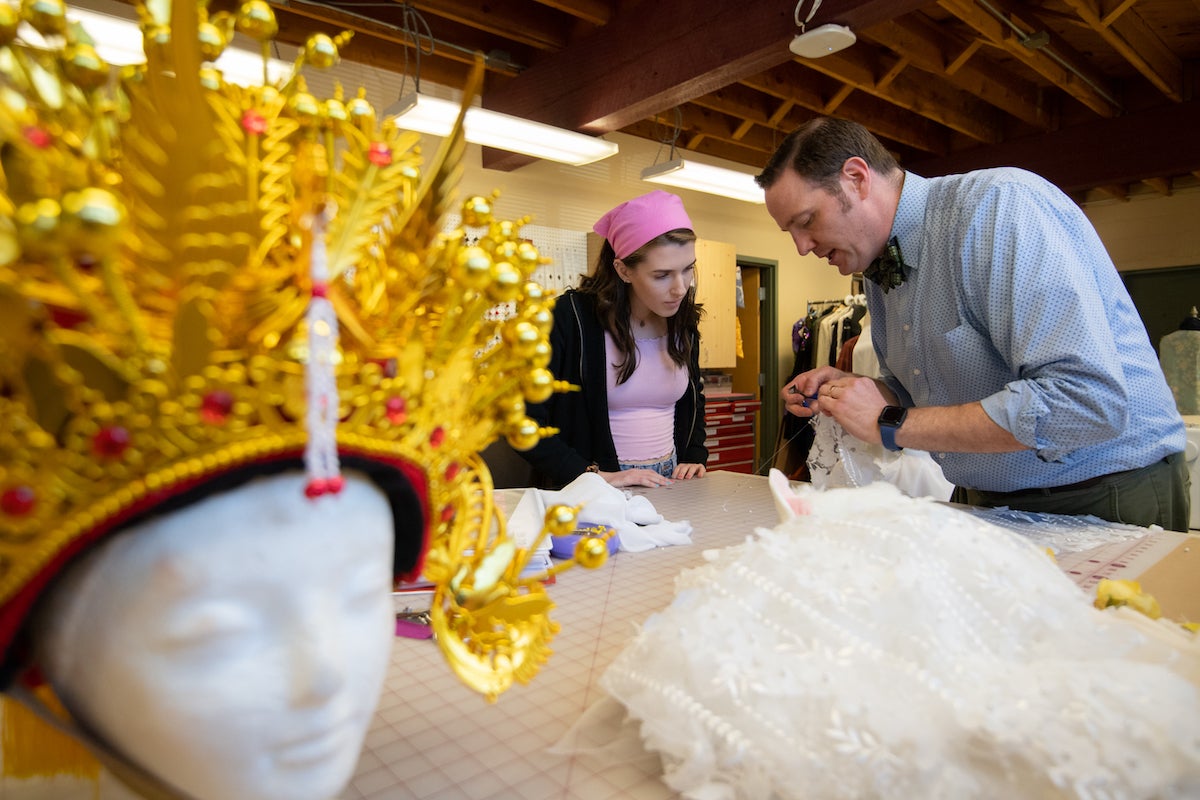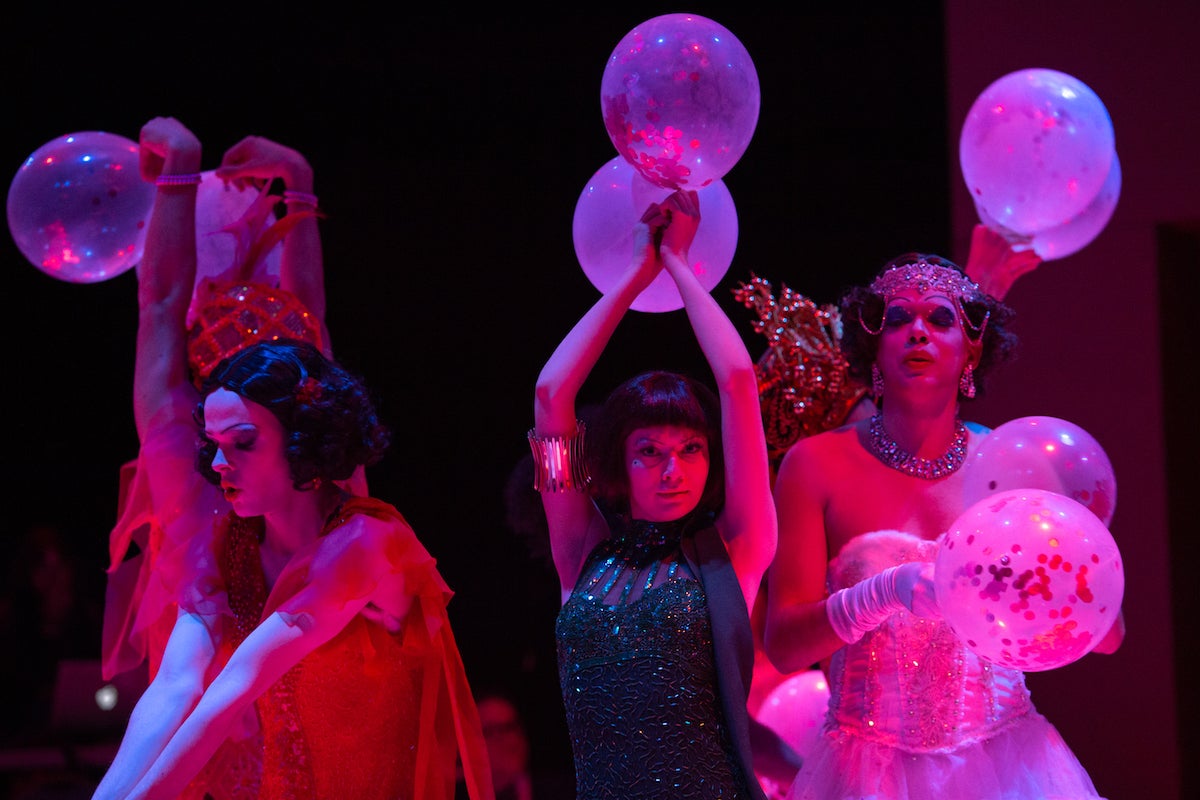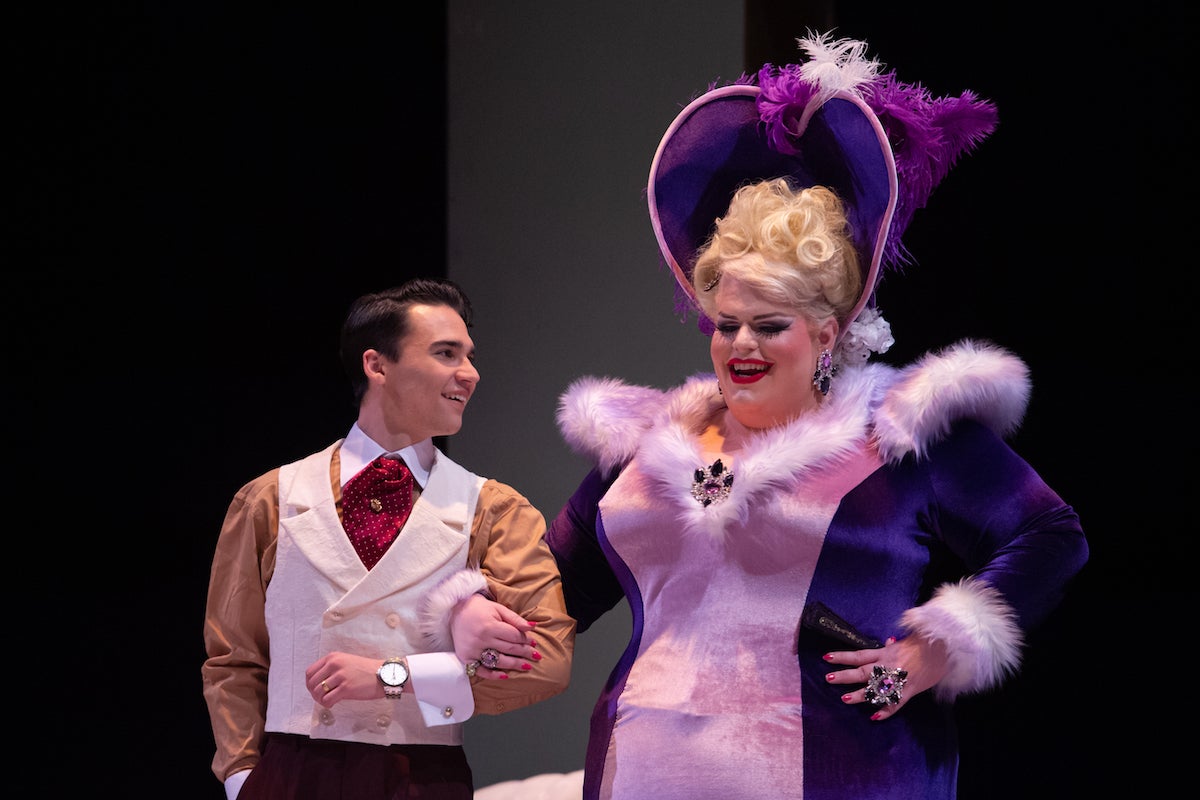In March, Boise State’s Department of Theatre, Film and Creative Writing will debut The Drag, a play written in the roaring ’20s about a closeted gay man who throws lavish drag parties whenever his wife leaves for the weekend.
Subtitled “A Homosexual Comedy in Three Acts,” The Drag was a play so incendiary for its time that it was banned after only 10 runs. It was a play that dared to star gay men with speaking roles, which, at the time, also was taboo. It was a play written by actress and original blond bombshell Mae West.
And March 5-22, it takes the Danny Peterson Theatre stage in the Morrison Center starring Boise’s own Minerva Jayne, who began her drag career nearly 25 years ago. In fact, she grew up idolizing West.

“I first discovered Mae West at the age of 12,” Minerva Jayne said, when she stumbled upon a double-feature on television. “I was a lonely child and had a very difficult childhood so I sought refuge in classic Hollywood films … I saw her on the screen, a voluptuous, blonde, marcelled vision and something inside of me clicked. There was an immediate kinship through the cathode ray tube and I became enamored.”
She cites the actress’s ability to buck trends – from her appearance, age, sexual liberation and sex-positive material, to her ahead-of-her-time understanding of societal issues – as among the many reasons to idolize West. Yet for all West’s strengths and talents, she is not remembered as a playwright.
When Boise State’s Department of Theatre, Film and Creative Writing pledged to only produce plays written by female playwrights for its 2019-20 season, its directors knew they wanted a challenge – and to challenge audiences.
“We wanted to give space to the female voice in our theatre,” associate professor of theatre Darrin Pufall explained.
The challenge wasn’t finding female playwrights who have produced works worthy of the stage – successful contemporary female playwrights abound. However, the department traditionally produces at least one period piece per season. As Pufall explained, female playwrights were “an anomaly of the early part of theatre history, we don’t really see them until the latter half of the 20th century.”
Pufall stumbled across a copy of The Drag in an anthology in Albertsons Library. He read it and was stunned. Although the play was produced (and subsequently banned) nearly a century ago, it touched on many topics still relevant today – gender identity, gay conversion therapy – head-on, with humor and grace.
“These are issues we’re still talking about nearly 100 years later in America,” Pufall said.
He signed on to direct and design costumes for The Drag. As part of his research, last summer Pufall immersed himself in West’s films and other plays (the ones that weren’t banned).

“Her films are funny, they’re smart. She became a champion, through her films, of human rights – women’s rights, people of color, the queer community. She had power when women didn’t have power, she had a voice when women ordinarily did not have that voice,” Pufall said.
The next step was casting. Pufall realized a show this unique called for a unique approach.
“As an openly gay man, I know about sexuality but I don’t know about drag or the trans world,” he explained. “I thought, ‘my gosh, I need to have the right voices in the room.’ Like Mae, we need to bring a personality into this. That got me started thinking about bringing in members of the community to talk to, and teach, our students.”
Minerva Jayne was an obvious choice. In addition to her work in drag, she is known in the community for her activism. Boise State auditions are always open to the community (although preference is given to Boise State students and more specifically, theatre arts majors). Pufall reached out to her via social media and asked if she would be interested in being in the show.
“There was no doubt in my mind, when I was approached, that I would say yes if given the opportunity to be involved,” Minerva Jayne said. “Any chance to showcase the talents of LGBTQIA people and talk about their unique experiences is worthy work. I feel incredibly honored to be a part of this show.”
Pufall also reached out to Boise State alumna Anne McDonald (BA, theatre arts, ’09) of Frankly Burlesque to see if she would be interested working with students on creating the elaborate drag acts called for in the show.
“Act two opens up with this lavish drag ball. In the script, there isn’t much dialogue – it’s a party,” Pufall said.

Considered one of the founding mothers of Boise’s burlesque scene, McDonald has been performing burlesque since 2006 under the moniker “Frankly Frankie” and producing shows since 2008.
“Burlesque is between the performer and the audience, and just like a theater production, there is much collaboration that goes into the piece that isn’t seen on stage,” McDonald explained. “One of the biggest challenges with the ensemble is breaking the traditional theater fourth wall and helping the students find their own sense of sensuality, tease, and connection with the audience.”
During its original run, Mae invited her friends in the drag community to perform. For the Boise State production, all the party guests have an act – including a drag magic show, a sister act, even a traditional Chinese dance.
McDonald hopes audiences understand through the performances that “when life or relationships are radically simplified (sometimes through a ton of make up, glitter, and bawdiness), bodies are bodies and love is love. It is the societal built artificial construct of morality that is harmful.”
“She has a lovely way of getting people to shed their inhibitions and find their inner creativity in ways we cannot do,” Pufall said of McDonald’s direction. “There are women dressed as men, men as women, women as men as women – we tried to mix it up so there’s an opportunity for expression. It’s been a really great exercise in creating character.”
Support from Boise State’s School of the Arts allowed Pufall to hire both Minerva Jayne and McDonald for the production.
“Having guest artists in the way we brought in Minerva and Ann is unique,” he said. “They’re experts; they’re professionals. They didn’t audition, we sought them out and brought them in. It was all thanks to funding from School of the Arts we were able to do that.”
Another unusual feature of the production: it comes with a blessing from the estate of Mae West – a process that took Pufall months of detective work to secure, as there is no licensed production of The Drag.
“Boise State has special permission from the estate of Mae West to produce this. We’re unique in that we’re allowed to adapt the script slightly,” Pufall said.
“The level of professionalism is incredible,” Minerva Jayne said of her experience with Boise State students, faculty and staff. “I have been impressed by the attitudes, passion and willingness to do the work that I have witnessed. I have been treated very well and the whole experience has been joyful for me.”
Pufall is using another of West’s plays, “The Pleasure Man,” along with pieces of her film and other writings to flesh out scenes in The Drag – scenes that were originally left verbally sparse because of all the drag happening on stage.
“The point is, it’s not me writing this thing,” Pufall said.
Staying true to West’s words – in fact, using as many of her own words as possible – is important to Pufall, who has come to admire West through her work.
“I really hope that audiences can understand what a powerhouse and liberating personality Mae West truly was, and that we’re still talking about the same issues that Mae was talking about in 1927,” he said, citing Idaho’s Add the Words campaign, a now decade-long battle to add “sexual orientation” and “gender identity” to the state’s human rights act.
“I’m also thrilled that this virtually unknown play gives our students tremendous opportunities for new and exciting ways to perform,” he added.
The Drag takes the Danny Peterson Theatre stage in the Morrison Center at 7:30 p.m. March 5-8, 12-15 and 19-22 (shows at 2 p.m. on Sundays). It will feature two acts and an intermission. Advanced tickets can be purchased here.
The department also is hosting a free Mae West retrospective at the Gem Center for the Arts, beginning at 7 p.m. March 11 and 18. Both evenings will feature free popcorn, guest speakers and a look at selections from West’s film oeuvre.
